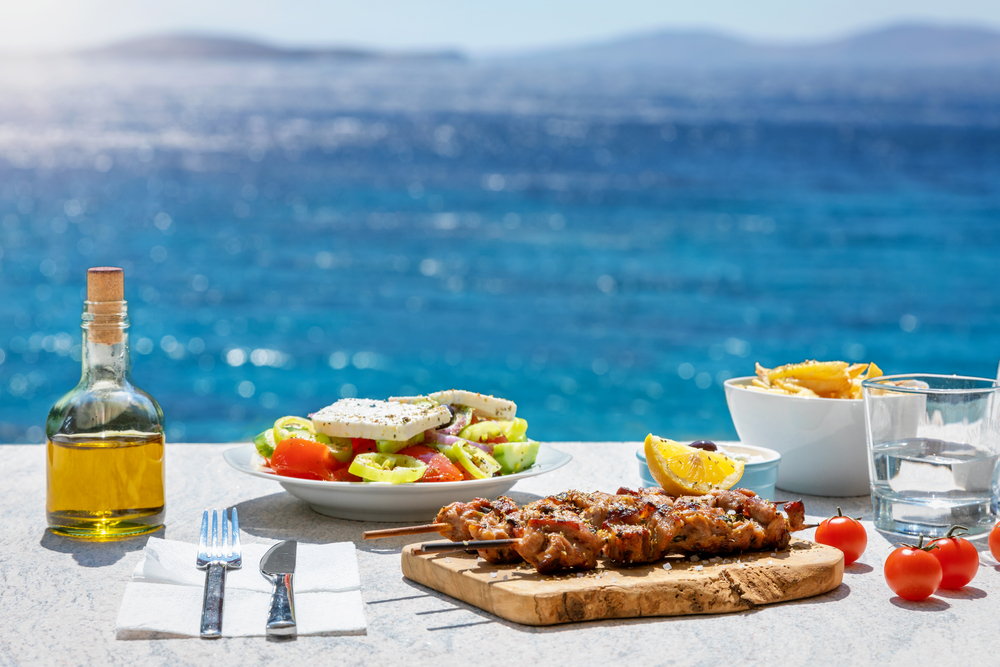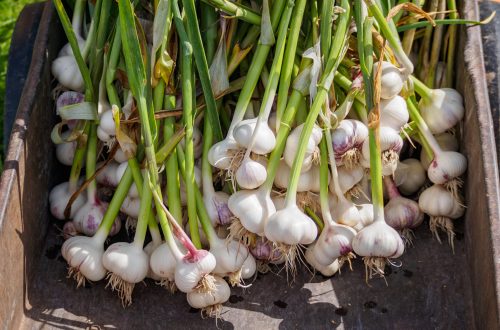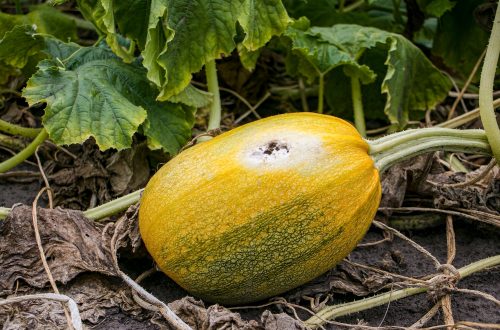
The Classic Beauty of Greek Cuisine
If you were asked to name the most popular cuisine in the world, would you know that it’s Greek? Yet TasteAtlas, the online travel guide, used 477,287 ratings for more than 15,000-plus cuisines; Greek food edged out Italian, not to mention Mexican, Japanese and, yes, French.
Like many, I patronize a few Greek restaurants and savor the Greek food festivals in our area every summer. But I usually don’t think about cooking Greek cuisine when I’m putting together my menus. But maybe in fact I do – except we call it “Mediterranean.” Greek food itself is described as frugal, but what sets it apart is the fresh ingredients and the ability to transform them with the liberal use of lemons and fresh or dried local mountain herbs such as thyme, oregano, and spearmint.
Think of the long history of this cuisine that was described in the Iliad and the Odyssey. It influenced Roman cuisine, not to mention others in the eastern Mediterranean. After all, Greece was part of the Byzantine and Ottoman empires for more than 1,500 years, and Greek foodstuffs were shared across the Mediterranean from Turkey to Tunisia.
Religious tradition forbade eating meat on Wednesdays or Fridays, during the 40 days before Easter and Christmas, and many other occasions. An influential cookbook in the late 1920s fanned the Greek nationalist flames by advocating that cooks eschew spices that might have been introduced by their Byzantine or Ottoman rulers, resulting in the disappearance of many spices from the cuisine. Nowadays, cooks might use allspice, cloves, cinnamon, and cumin in moderation.
The Mediterranean diet
Today’s Greek dishes are heavily dependent on local ingredients – fresh vegetables, herbs, cheeses, fruit, olive oil, and not much meat. That sounds to me like the Mediterranean diet that most Americans mimic to lose weight. It’s the same diet that Greeks eat daily that makes them healthy and live long.
Like many cuisines, Greek food is primarily influenced by its geography, and that’s why you’ll find two different cuisine types: one in the coastal and island regions and the other in the mountainous interior. Coastal Greece and the islands rely on largely on seafood and fresh vegetables like cucumbers and tomatoes. Inland, where the rugged landscape is too cold and arid for olive trees, food is more robust. Many homes have gardens, and small farms usually have one or two goats for producing cheese and milk, and hens for eggs.
Traditional regional dishes
Aglaia Kremenzi, dubbed the doyenne of Greek cooking for her award-winning 1993 cookbook The Foods of Greece, focuses on the regionality of Greek food. For example, she says a traditional dish of chickpeas and rice with currants is still served at weddings in Konya, a once-Greek city in Asia Minor. In central Greece, there’s a different twist on rice and chickpea pilaf. Her keftedes (Greek meatballs) is a combination of recipes from Macedonia and Thrace and combines ground beef with bulgur, grated summer squash, onions, and grated kefalotyri (or Parmesan) cheese. Cheese pies are found all over Greece; the heartier pies consumed in the interior mountain are typically made with hard yellow cheese and quantities of butter, while those on the coastal regions use lighter white cheese and less butter.
As for moussaka, the dish most associated with Greek cooking, Kremezi suggests it was probably the invention of an educated Turkish chef who was inspired to use the French béchamel sauce as the topping for an eggplant and meat casserole. She instead prefers cooking “kolokithia kai dolmades ambelofilla” or zucchini stuffed with ground lamb, a dish common throughout Greece. Sometimes, she says, stuffed vine leaves are added to the stuffed zucchini, and the combination produces a much tastier dish, complemented by piquant avgolemono sauce. Here is a link to a rich library of Americanized Greek dishes you might like to try.
As for dessert and sweets, Greek cooks make use of the local nuts, seeds, and honey in such iconic dishes as baklava, although they often finish a meal with fresh fruit. Altogether, it’s those meals that make Greek cuisine not just a healthier alternative, but delicious.
As the Greeks say before a meal, “kali oreksi!”




